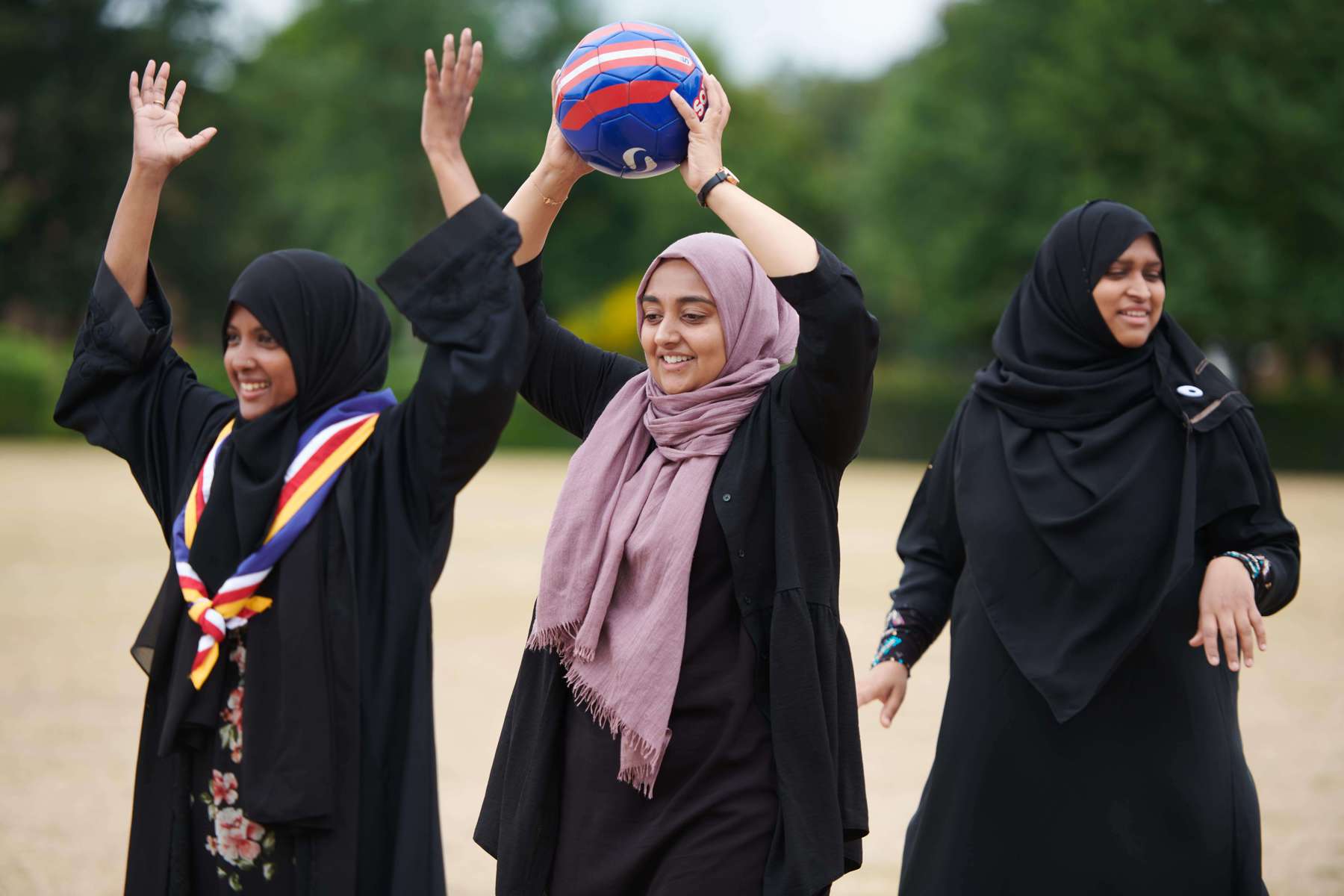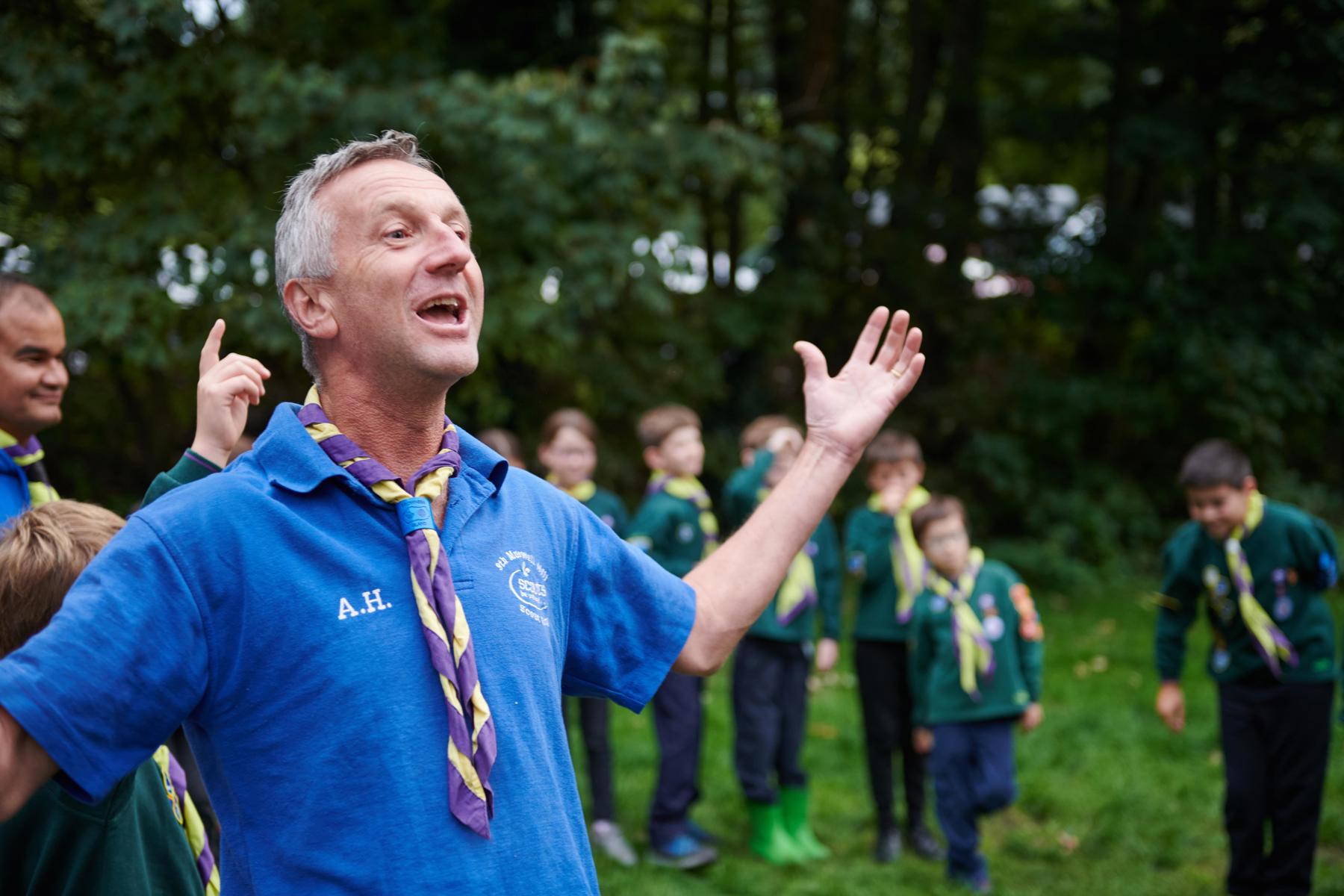Your role in moving to teams based volunteering and simpler role titles
Through 2023 and beyond, we’re introducing changes to your volunteering experience at Scouts. These changes are about making volunteering with Scouts easier and more fun, so we can attract more volunteers and help our current volunteers feel like they want to stay. This’ll help us provide skills for life to more young people across the UK.

To do this, we need to change how we do things, and our culture. This way, we’ll stay relevant and inclusive to volunteers and young people from all backgrounds, and remove any barriers to becoming (and remaining as) a volunteer at Scouts.
We want flexible volunteering to be a reality, and to make sure volunteering suits people’s skills, interests, and free time.
We’re moving to teams-based volunteering, which means there’ll be clearer roles and responsibilities for everyone. To do this, instead of role descriptions, we’ll use team descriptions to share tasks among teams of volunteers. This means teams can decide how to split up tasks to suit everyone’s skills and availability.
We want our teams and titles to be easier to understand and more appealing, especially to new volunteers. This means we're changing from a complex system of over 400 volunteer roles to a new, simpler system.
What this means for the future
As we move to a teams-based approach for volunteering, there’ll be changes to all roles. For everyone in local leadership roles:
- Group Scout Leaders, District Commissioners and County/Area/Region Commissioners will be known as Lead Volunteers
- Youth Commissioners will be known as Youth Leads.
Where this came from
In 2020, we commissioned independent research experts. They worked with a number of volunteers and staff to co-design an improved volunteer experience.
This research showed us that we needed to make changes to volunteering.
- Volunteers or potential volunteers didn't understand what our roles were or what was expected of them.
- Volunteers want to help out in teams/groups, and have more flexibility as and when their lives change
- We need to make our volunteering roles more manageable and attractive. We should make it clear what volunteers need to do, so we can then make sure the right people are in the right teams/roles.
- Our language can be a bit of a barrier. Potential volunteers find it hard to see us as relevant, or see a place for themselves in Scouts (especially in communities where Scouts isn't currently active).
We’ve also worked with volunteers to make sure we get things right. We’ve heard what a wide range of volunteers have to say on some of our proposed changes.
We understand there’s a lot of work for Group Scout Leaders and Commissioners. 45% of them described their volunteering workload as ‘difficult’ or ‘really difficult’ in the Scout Volunteer Experience survey.
For people leading local Scout Groups and Districts, we’ll refocus them to inspire their teams and enable others to bring forward their skills to benefit their area.
Changing what our Group Scout Leaders and Commissioners do is one part of how these roles can appeal to people in the future.
How this ties in with the role titles
From volunteer feedback, we learned many existing members have strong views about the term ‘Commissioner.’ Around half of our current volunteers would like to keep this title, as they believe there’s no need to change. The other half believe now is the time to change, with comments around the term ‘Commissioner’ having historical links, not reflecting modern day volunteering and potentially not being understood by volunteers who are new to Scouts.
Census shows us that 30% of all leadership roles are vacant (53% of District leadership roles and 27% of Group leadership roles) and they can be very hard to recruit for.
We also surveyed 2,000 people outside of Scouts who told us that roles with ‘Commissioner’ in the title are seen as less attractive, less appealing, and less manageable than some alternatives.
- 43% said ‘Lead Volunteer’ sounded like a volunteer who provides leadership and inspiration to other volunteers in the district, compared to 7% who thought this about ‘Commissioner’.
- 24% said ‘Lead Volunteer’ sounded like an appealing role, compared to 13% for ‘Commissioner.’
- 6% said they’d be interested in volunteering for a role with ‘Commissioner’ in the role title, compared to 19% who’d volunteer in the same role if it was presented as ‘Lead Volunteer’.
By changing our roles titles, we can make key leadership roles consistent and reflect the purpose and responsibilities of the role more accurately. We’ll also:
- be more inclusive
- be clearer and more understandable to people inside and outside of Scouts
- be able to remove some of the barriers to becoming a volunteer.
For more details on our teams-based approach to volunteering and how we’re simplifying all roles in Scouts, please talk to your local Transformation Lead and team. They’re making plans for how these changes will roll out in your area.
We’ll share more information soon, with support on how to structure your own teams. Since you’re a Group Scout Leader, District Commissioner or County/Area/Region Commissioner role, you’ll be the Lead Volunteers for your area.
There’ll be more changes to come for others with ‘Commissioner’ in their title, such as Assistants or Deputies. We’ll provide more information soon on how your Deputies and Assistants can change to be ‘Team Leaders’ or leadership team members (if they’d like), as you start to look at the structure of your local team.
Thank you for your local leadership and for helping volunteers understanding the reasons behind the upcoming changes, as well as the rewards that’ll come from this.
Jack Caine, UK Commissioner for People and Programme Sponsor for Volunteer Experience
